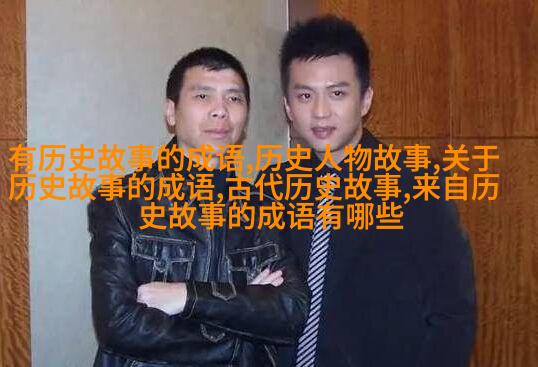
为何称汉武大帝汉武帝时代及其对中国历史的深远影响
在中国悠久的历史长河中,皇帝是权力的象征,他们的统治往往决定了一个朝代的兴衰。汉朝,是中国历史上最为辉煌和稳定的朝代之一,其开国皇帝刘邦被尊为文王,而他的后继者武帝刘彻,则以其雄才大略、开疆拓土,被后人尊称为“汉武大帝”。

第一段:Han Dynasty and Emperor Wu of Han
1. Introduction to the Han Dynasty

The Han dynasty, established in 202 BCE, is one of the most influential dynasties in Chinese history. It was founded by Liu Bang, who was later deified as "Emperor Gaozu." The dynasty's name comes from the family name of its founders: Liu.
2. The Emergence of Emperor Wu

After ascending to the throne at a young age, Emperor Wu faced numerous challenges that threatened the stability and unity of his empire. Despite these difficulties, he demonstrated remarkable leadership qualities and strategic thinking.
3. Reigning Period & Achievements

Emperor Wu ruled for nearly four decades (141-87 BCE), during which time he implemented various reforms aimed at strengthening central authority and promoting economic growth.
第二段:Reforms & Policies Under Emperor Wu's Rule

A. Centralization & Military Reforms
In order to consolidate power and expand territorial control, Emperor Wu implemented significant military reforms that led to increased efficiency within his armies.
B. Legal System Reformations
To establish a more efficient legal system for governing China effectively, Emperor Wu standardized laws across all regions under his jurisdiction.
第三段:Cultural Developments During The Reign Of Emperor Wu Of Han
A. Confucianism Revival And Promotion Of Education
Confucius' teachings were revived during this period due to support from both imperial court officials as well as ordinary citizens seeking moral guidance amid political turmoil following Qin Shi Huangdi's rule over China with an iron fist after unifying it through brutal force.
Confucianism became widely accepted throughout society because it promoted values like filial piety (the importance of respect towards parents) - which helped maintain social harmony - along with other virtues such as benevolence (ren), righteousness (yi), propriety or etiquette (li) , wisdom or intelligence (zhi). This promotion contributed significantly towards maintaining social stability under the reigns subsequent rulers including those who succeeded emperor wu after him until their eventual decline around several centuries later when Tang dynasty took place about two millennia ago!
A great emphasis on education was placed upon learning Confucius' teachings so students could learn how best manage government affairs while keeping up with changes happening around them; they also learned how treat others respectfully regardless their background be it high-ranking official or lowly peasant farmer; thus cultivating strong character traits necessary for running successful administration efficiently without causing harm nor corruption amongst people involved within bureaucracy systems created by successive generations ruling over vast territories spanning many years long after han era ended eventually leading us into modern times today!



